Contest fees for a given entry are just $30. An invoice for contest fees will be sent to everyone who enters the contest in early June.
Entries must have been published — online or in print — by a daily or non-daily newspaper between June 1, 2023, and May 31, 2024.
Questions about this contest should be addressed to Cindy Durham, communications director, America's Newspapers, at cdurham@newspapers.org or call (205) 728-5250.
Awards for excellence in editorial writing (representing the view of the newspaper) and awards for excellence in column writing (columns written by one or more individuals) will be presented this October in Charleston, South Carolina, at the America's Newspapers Senior Leadership Conference. Win cash prizes and recognition!
Contest judges will be evaluating the entries in both categories this summer — in two circulation brackets: over 35,000 circulation and under 35,000 circulation. Three cash prizes and plaques will be awarded in each bracket:
Cash awards will be as follows in each of the four contest brackets: first-place, $2,250; second-place, $1,000; and third-place, $500. This puts total cash prizes at $15,000 — thanks to the generous support of Lissa Walls Cribb and Southern Newspapers, Inc.
In addition to the top three in each bracket, America's Newspapers also will be recognizing additional finalists.
This contest has always sought to recognize strong, courageous and positive editorial page leadership. Judges will take the courage it took to write the editorials or columns into highest consideration.
Submit entries that demonstrate courageous writing!
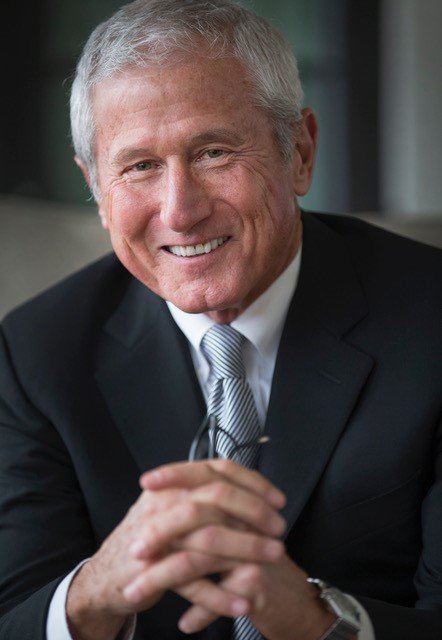
Newspaper editorial pages, as once we knew them, may be dying. God, I hope not.
For if a newspaper has brains, it will show up on the editorial page. If a newspaper has a heart, it will show up on the editorial page. If a newspaper has courage, it will be most evident on the editorial page.
All those things — brains, heart and courage — are ephemeral, impossible to measure, and impossible to teach in a journalism class.
Yet those things are the building blocks on which any news organization builds its relationship with its community, its audience. That relationship is built over many years. It’s a lot like a marriage. Seriously.
Any lasting human relationship requires honesty. There will be mistakes, failure, occasionally broken trust. Marriages require forgiveness, over and over, and sometimes courage.
Building that kind of intimacy with a family of readers has been at the heart of newspapers’ success in the past. I think it may be an important key to how we rebuild relevance and excitement among our readers.
Many corporate owners of newspapers these days obviously disagree.
Some have banned editorial page endorsements as being more trouble than they’re worth. It’s rare today for newspapers to invest much in staff or other resources for editorial pages. No ads on that space equals no expenditures for it.
That’s as tragic, and as hopeless, as any form of suicide.
Publishers should see newspaper commentary as a vital means to build trust and to reinforce deep, lasting relationships with readers, even when it’s difficult and troublesome.
I grew up in Tuscaloosa, Alabama, where the newspaper’s publisher was Pulitzer winner Buford Boone. My conservative parents did not always agree with the more liberal Mr. Boone, but they read the paper and respected it while disagreeing often.
As I recall the dinner table conversations, their feelings often were intense, even passionate. Their loyalty over decades was in direct proportion to that passion.
When I retired as publisher of The Daily News in Galveston, Texas, a reader paid me what I still see as the ultimate compliment.
“I really didn’t think you were always right,” he said, “but I thought you were always trying to be.”
It was my friend’s way of saying he admired the newspaper’s willingness to take the risk of leadership, even when it was controversial or inconvenient. I still believe that risk is worth it.
Newspaper leaders have to make themselves vulnerable to risk. They must have the bravery to boldly argue for a better tomorrow. Otherwise we’re just a bunch of damn bulletin boards. The internet handles that role better than we do.
Newspapers, to have a future, must engage the brains, hearts and hopes of their readers. And if we don’t, shame on all of us.
Dolph Tillotson is chairman of Southern Newspapers, Inc.

You might ask yourself, what is the difference between a column and an editorial? While both represent the heartbeat of a newspaper, each includes a different objective and road to accomplishing a goal. While a column is generally a first-person account, an editorial represents the newspaper as an institution. Additionally, columns extend a latitude to the writer of choosing a profoundly personal matter or to give the reader a chuckle.
Consider a column as a personal conversation with the reader. An editorial is all business — much like putting on battle paint and heading into the world to make a difference. Editorials are not written to take up space but to create thought, generate discussion and lead to change. Both are critical to a great newspaper's DNA, each bringing tremendous value to our institution.
This year's Carmage Walls Commentary Contest is an opportunity to show off your chops: wordsmithing, insightful observations, and moving a reader or stranger to action. Get in the game.
Leonard Woolsey is president of Southern Newspapers, Inc., and president and publisher of The Daily News in Galveston, Texas.

Many qualities can contribute to an excellent column or editorial, including eloquence, clarity, perceptiveness, humor, empathy and outrage, but the rarest and most compelling quality is courage.
Editorial courage isn’t about being reflexively contrarian or provoking readers with partisan views. It’s about taking a risk to tell the truth. It’s saying what many readers won’t want to hear or taking aim at powerful local institutions. That’s a hard thing to do and the reaction can be hard to endure. But it’s essential to the value and integrity of journalism.
The Carmage Walls Commentary Prize seeks to recognize, reward and foster editorial courage.
Ned Barnett is associate opinion editor for The News & Observer in Raleigh, North Carolina.

With an expanded contest this year, America's Newspapers awarded honors for both editorial writing and column writing on Monday, with top honors going to staff members from The Wichita (Kansas) Eagle; The Berkshire Eagle, Pittsfield, Massachusetts; The Oklahoman, Oklahoma City; and the Austin (Texas) American-Statesman.
The prize is named for the late Benjamin Carmage Walls whose newspaper career spanned seven decades. Walls primarily owned community newspapers and advocated strong, courageous and positive editorial page leadership.
Awards for editorial writing and column writing were presented in two circulation breakouts: under 35,000 circulation and over 35,000.
EDITORIAL WRITNG
Clytie Bunyan, managing editor for diversity, community engagement and opinion with The Oklahoman, placed first among newspapers with circulations over 35,000 circulation and Dave Coffey, editorial page editor of The Berkshire Eagle in Pittsfield, Massachusetts, placed first among newspapers under 35,000. First place carries a cash prize of $2,250.
Second-place honors in the over 35,000 circulation bracket was awarded to David Barham, editorial page editor of the Arkansas Democrat-Gazette. The prize in the under 35,000 circulation bracket was shared by John Nagy, editor, and David Woronoff, publisher, of The Pilot, Southern Pines, North Carolina. Second place includes a cash prize of $1,000.
Third-place honors were awarded to Douglas Lyons, editorial writer, and Tony Doris, editorial page editor of The Palm Beach Post (over 35,000 circulation). In the under 35,000 bracket, third-place honors went to Dave Stafford, assistant managing editor of The Republic in Columbus, Indiana. Third-place honors include a cash prize of $500.
Judges also recognized two additional finalists in this category: Corey Friedman, The Wilson (North Carolina) Times, and Michael Smith, The Galveston County Daily News.
COLUMN WRITNG
Bridget Grumet, metro columnist with the Austin (Texas) American-Statesman, placed first among newspapers with circulations over 35,000 circulation and Dion Lefler, opinion editor of The Wichita Eagle in Kansas, placed first among newspapers under 35,000. First place carries a cash prize of $2,250.
Second-place honors in the over 35,000 circulation bracket were awarded to Brier Dudley, Free Press editor of The Seattle (Washington) Times. The second-place prize in the under 35,000 circulation bracket was presented to Lizi Arbogast Gwin, managing editor of The Alexander City (Alabama) Outlook. Second place includes a cash prize of $1,000.
Third-place honors were awarded to John Brummett, a writer with the Arkansas Democrat-Gazette in Little Rock (over 35,000 circulation). In the under 35,000 bracket, third-place honors went to Jess Huff of The Lufkin (Texas) Daily News. Third-place honors include a cash prize of $500.
The judges in this bracket also recognized four additional finalists: Bridget Grumet, Austin American-Statesman (for a second entry submitted in the contest); David Plazas, The Tennessean; Karl Richter, Texarkana Gazette; and Gary Stallard, The Lufkin Daily News.
In announcing the 2023 Carmage Walls Commentary Prizes, Lissa Walls Cribb, CEO of Southern Newspapers, said: "This prize is very special to me, as it is named for my father, Benjamin Carmage Walls, who firmly believed that courageous and thoughtful editorial leadership was one of a newspaper’s primary responsibilities."
She noted that more than twice as many entries were received this year over last year, with 114 very impressive entries.
And, separate awards were presented for editorial writing and for columns.

First Place
Clytie Bunyan
The Oklahoman
Oklahoma City
The Oklahoman two years ago moved away from publishing daily opinion content, including regular use of its institutional voice. Instead, the staff reimagined their approach to opinion by offering those pages as a platform for community voices, especially for marginalized communities. But, when the newly elected superintendent of public instruction showed a video at a Department of Education meeting that left teachers deflated, the paper published an editorial written by Clytie Bunyan, managing editor for diversity, community engagement and opinion, with a tagline: "This editorial reflects the opinion of this publication's Editorial Board."
She notes that there is a "super majority Republican government in Oklahoma, so the chances of the Legislature acting to remove the superintendent are slim." But, the paper wanted to go on record and loudly say his actions are unacceptable.
Judges said this entry had a "lot of energy" and represented "unapologetic opinion writing."
They said she called out a powerful figure and took a stand that was likely to be unpopular with many readers. It required courage to take on a powerful figure at a paper that was likely to have pretty conservative readership. They said the editorial was "well-written, timely, urgent and brave — all of the elements we were looking for."
The opening paragraph of this editorial reads: "Oklahoma, we elected a superintendent of public instruction who willfully neglects his duty to foster conditions for the academic growth of our children. Instead, he cares more about pushing harmful propaganda and demoralizing our teachers, already exhausted by his toxic rhetoric."
Read her entry:

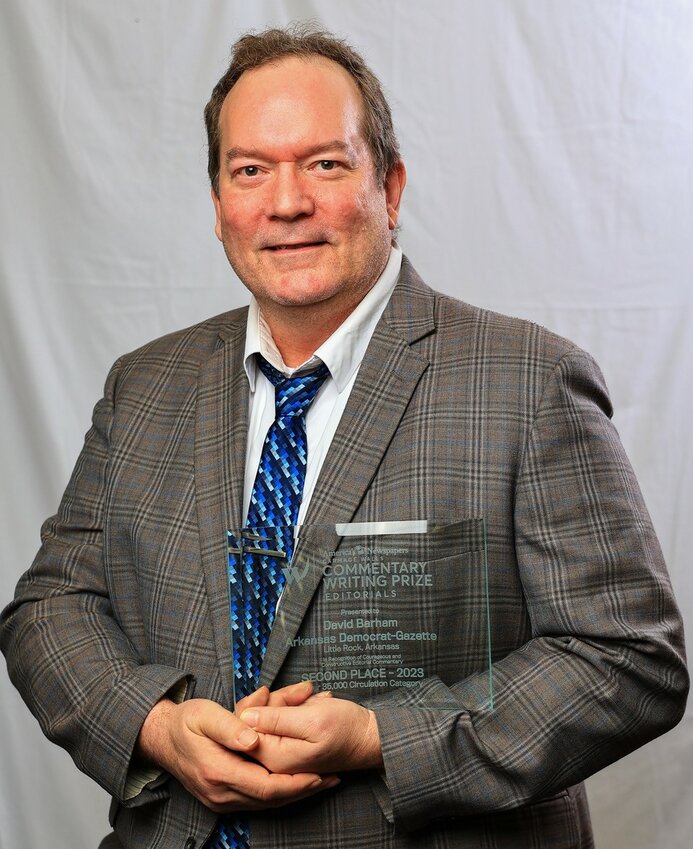
Second Place
David Barham
Arkansas Democrat-Gazette
Little Rock
The Democrat-Gazette editorial writers touched on the Jan. 6 riots — and the court appearance and sentencings of various rioters — several times in the past few years. Three editorials on the subject, written by David Barham, editorial page editor, placed second in this year's contest.
Among the judges' comments:
Read his entries:

Third Place
Douglas Lyons, Editorial Writer
Tony Doris, Editorial Page Editor
The Palm Beach Post, West Palm Beach, Florida
The Palm Beach Post began raising concerns of the difficulty in obtaining property insurance amid the state's industry-friendly efforts to address the problem during and after two special legislative sessions in 2022 and again in this year's session of the Florida Legislature. These editorials resulted in greater awareness from readers and helped convince lawmakers to at least increase efforts to help policyholders.
Judges were impressed with this entry, noting that this is an issue that is top of mind in Florida.
Read their entries:
This link includes the following three editorials


First Place
Dave Coffey
The Berkshire Eagle
Pittsfield, Massachusetts
In a years-long investigative series, Berkshire Eagle reporting exposed the Roman Catholic Diocese of Springfield’s efforts to cover up credible sexual abuse allegations against a powerful former bishop. Without the courage of the survivor and dogged investigative reporting, Coffey says it’s likely that the truth of a prominent diocesan figure’s brutal behavior and the efforts to sweep it under the rug would have stayed hidden forever.
On his contest entry form, he said: "When the survivor led a civil suit over the childhood abuse he suffered and the mishandling of his report, the diocese responded in part by targeting The Eagle and the reporter who broke the story, Larry Parnass. The diocese threatened him with deposition and demanded an array of information from the newspaper including Mr. Parnass’ notes, which could have exposed confidential sources over years of sensitive reporting.
"Our editorials called out this chilling tactic for what it was: a shameless continuation of a discrediting campaign against an abuse survivor by going after the reporter who revealed damning truths in this regional chapter of the clergy abuse scandal. It was not just an attack on a community newspaper but a broadside against the First Amendment and the unique measure of accountability it vests in all newsrooms and editorial pages.
"When the diocese recently agreed to settle the civil suit, it formally admitted an abuse survivor’s truth that was raised from the dark depths to the surface in a way that only the free press can."
Judges said:
Read his editorials:

Second Place
John Nagy and David Woronoff
The Pilot, Southern Pines, North Carolina
The editorials submitted by John Nagy, editor, and David Woronoff, publisher, pertained to recent actions of the Moore County Board of Education.
Judges said:
Read his editorials:


Third Place
Dave Stafford
The Republic
Columbus, Indiana
After a local woman was murdered in her home by her estranged husband, who then killed himself, The Republic dug into the records. Stafford said it "became evident our courts had failed to protect her."
He said: "The woman had petitioned for a protective order against her estranged husband. She had gone to court and submitted evidence claiming domestic violence, yet the court declined to err on the side of caution and enter a protective order in her case.
"We felt a need to speak with a strong voice on our editorial page and call out this failing, and we did so, forcefully pointing out how our local courts failed to apply the law. Soon afterward, the local courts reaffirmed a commitment to protecting victims of domestic violence. Judges pledged to meet with local domestic violence prevention groups. Since then, these meetings have happened. Local law enforcement also met with domestic violence prevention advocates for joint training.
"We believe our editorials, and the public reaction to them, helped focus the community on a failure to protect when the courts' help was sought that we hope never happens again. The emphasis now is undoubtedly on prevention and protection."
Judges said:
Read his editorials:

Judges also recognized two additional finalists in this category:
Finalist
Corey Friedman
The Wilson Times
Wilson, North Carolina
On his entry form, Corey Friedman said: "The conservative backlash against school libraries over young adult books dealing with themes of gender, sexuality and race reared its head in our eastern North Carolina community last year, with members of a newly formed advocacy group attending school board meetings to highlight content they consider objectionable and ask the Wilson County Board of Education to create a rating system for library materials."
He added: "On its editorial page, The Wilson Times mounted a principled defense of the freedom to read on constitutional, moral and ethical grounds, explaining why the group's characterization of certain books as 'obscene' is inaccurate and how its proposed rating system is impractical and unnecessary. Appealing to the silent majority of public school parents who don't attend school board meetings, we explained that their right to make rules for their own children doesn't entitle them to deprive other parents of the same prerogative.
"To date, the Board of Education has not acted on any of the group's requests and is not considering a library book rating system. Our editorials on the subject steered public debate, reassuring board members that no policy changes are needed and generating numerous letters to the editor written in response, including several from members of Wilson Partners in Education, the advocacy group seeking the restrictions. The Times remains committed to the free flow of information and the principle that public libraries should serve as guides rather than gatekeepers."
Judges called these editorials "thoughtful, courageous and constructive."
They also said:
Entry includes 3 editorials:

Finalist
Michael Smith
The Galveston County Daily News
Galveston, Texas
The editorials helped expose some shady characters running dark-money campaigns in two small local cities.
Judges liked this editorial about shady characters running dark money campaigns, saying it had a clear point that the board was trying to make. It was written with some bite. In terms of courage, judges said this was a local issue taking on local folks who probably didn’t like that he was writing about this.
They called it "good, brave reporting."
Read his editorials:
First Place
Bridget Grumet
Austin American-Statesman
Austin, Texas
Austin American-Statesman Metro columnist Bridget Grumet confronted "the most formidable force in our community — law enforcement — in a trio of columns that challenged police narratives and revealed efforts to dodge accountability," Editor Manny Garcia said in submitting her work for the Carmage Walls Commentary Prize.
He said: "In two cases, Bridget obtained exclusive video footage that raised central questions about officers’ use of force. (Both videos appeared with the online versions of the columns.) Austin police came under scrutiny last November for fatally shooting tech entrepreneur Rajan Moonesinghe outside his home, after he fired his gun at what he believed was an intruder. Reporting with rigor and empathy, Bridget revealed a deeper tragedy than readers knew: She obtained 911 recordings showing the police dispatcher failed to tell the arriving officer that Moonesinghe lived in the house and was not a burglar. The officer opened fire with scant warning. She obtained front porch Ring camera footage that showed officers kept the grievously wounded homeowner in handcuffs as he bled to death, a shocking practice that still demands an answer from police.
"A few months later, state troopers took the unprecedented step of expelling dozens of LGBTQ+ demonstrators from the Texas Capitol in Austin — a show of force that traumatized a community being targeted by new legislation. Texans expected that troopers had good reason for any arrests they made, but Bridget’s reporting showed the opposite: A judge had promptly tossed the charges against one protester, and cell phone video footage obtained by Bridget showed a second protester had been cited for nothing more than accidentally bumping a trooper with a baseball cap.
"Accountability is impossible without transparency. As the issue of civilian police oversight landed on the city ballot this spring, Bridget spotlighted the underhanded tactics by the well-funded Austin police union to sandbag voters. Bridget’s coverage not only helped voters sort out the confusion over two ballot measures with the same name, but she called out the police union’s effort to advance a law that would bypass Austin voters altogether. (That bill died in the final days of the legislative session.)
"In Austin, our law enforcement officers have vast powers to use deadly force, make arrests and establish a narrative (whether true or not) through official reports. The watchdog for the public is the press."
Judges said:
Read her columns:


Second Place
Brier Dudley
The Seattle Times
Seattle, Washington
Brier Dudley's weekly columns (supplemented with a newsletter and dedicated website) raise awareness of America's local journalism crisis, explain challenges facing the industry and advocate for solutions and policy responses.
During 2022 and early 2023, his columns urged Washington's Legislature to help save the local press. They proposed a reporting fellowship and urged action on a tax break for local newspaper publishers.
He said Washington's Legislature funded the civic reporting fellowship program, to place graduating journalism students in local outlets, and the tax break estimated to save local publishers at least $10 million over the next decade.
The columns are made available for free to the public and to other newspapers for their use. The entire body of work is viewable here: st.news/SavetheFreePress
Judges said his columns were well-written and courageous — with a lot of local elements.
They also said:
Read his columns:

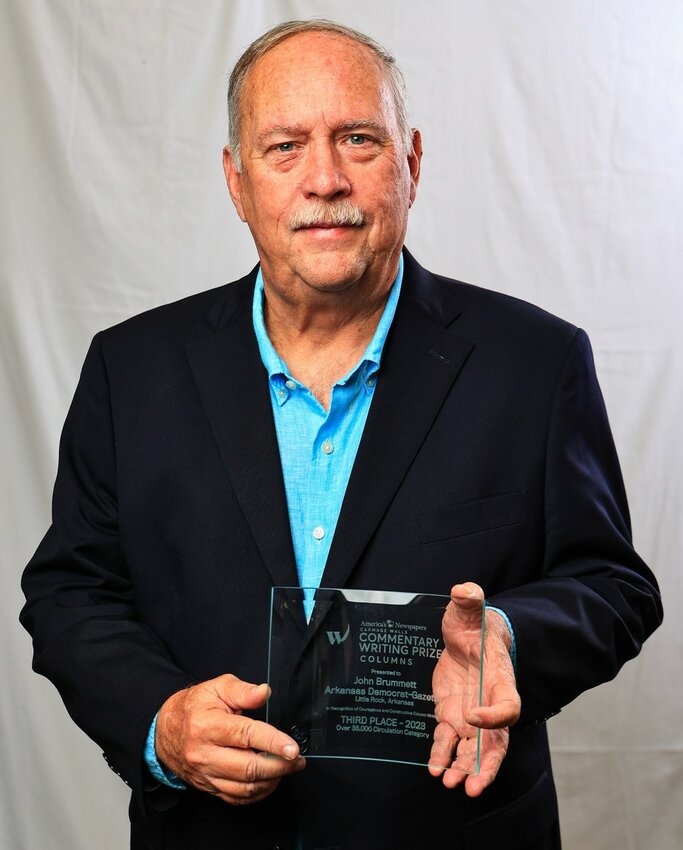
Third Place
John Brummett
Arkansas Democract-Gazette
Little Rock
David Barham, editorial page editor of the Arkansas Democrat-Gazette, says John Brummett is "one of the lions of Arkansas journalism, and one of a dwindling breed at that. He’s a fierce liberal who doesn’t mind being one in this reddest of red states — and folks here demand his column. (It’s said one of the greetings in Arkansas among friends is: 'Have you read Brummett this morning?')"
Judges said:
Read his columns:

The judges in this bracket also recognized two additional finalists:
Finalist
Bridget Grumet
Austin American-Statesman
Austin, Texas
A second set of columns by Bridget Grumet also was recognized as a finalist this year.
Editor Manny Garcia said Grumet has long held Texas Attorney General Ken Paxton to account, well before the state House impeached him in May.
He said, "With dogged reporting and smart prose, Bridget has continued to show how Paxton used his power to advance an agenda at odds with Texans’ interests."
Garcia said: "While other news outlets dashed off stories last fall from a press release about an Austin woman denied medical care under Texas’ new abortion bans, Bridget sat down with Amanda Zurawski, who shared in intimate detail the trauma of her ordeal — one that any pregnant woman could face in Texas. Then Bridget showed how Zurawski’s suffering was the inevitable result of Paxton using the courts to block care for women in cases like hers, all while the governor acknowledged problems with the laws but did nothing to fix them.
"Bridget also continued her long-running scrutiny of Paxton’s efforts to interfere with those who run our elections. Hours before VoteBeat broke the story about Paxton issuing an advisory opinion on public access to ballot records, Bridget learned elections officials were already getting inundated with requests for this data. Bridget traced the chatter about this advisory opinion on right-wing social media and helped readers understand how Paxton had just propped open a door for anyone who wants to wreak havoc in an upcoming election.
"Paxton’s longest-running scandal — the fact that he remains under criminal indictment while serving as Texas’ top cop — has dragged on for so long that many Texans have become inured to the controversy. As the case reached another milestone with no end in sight, Bridget cut through the doubletalk, plainly explained the delays and showed how far removed this case has become from the judicial system for the rest of us. Implicit in every column is a question to readers: Are you OK with this?
"In fair-minded commentaries devoid of cheap shots, Bridget showed how the state attorney general championed his own interests ahead of those of Texans."
Judges scored this entry very highly. They said the columns were excellently sourced with clear writing and persuasive conclusions. They said the columns explain complex situations in ways that help the reader understand the gravity of what is happening in Texas. They said it contained strong reporting and opinion writing in a very clear and concise style.
Read her columns:


Finalist
David Plazas
The Tennessean
Nashville, Tennessee
David Plazas has written on Tennessee politics since he arrived in the state capital, Nashville, in 2014. He has developed deep sources and expertise on matters of City Hall, the state legislature and the Tennessee congressional delegation. The submissions in his entry reflect that breadth of knowledge, clarity in writing and depth in argument.
The first column ("Footloose" in Tennessee) addressed the proposal to prohibit drag shows from public places as part of the ongoing effort to marginalize LGBTQ citizens, which had been occurring for years. Plazas argued that drag shows and places of worship could co-exist. While the legislature adopted the bill and the governor signed it into law, the courts have sided against the state to date.
The second column focused on the arduous election of Rep. Kevin McCarthy as Speaker of the U.S. House of Representatives. Eight of Tennessee's nine members of Congress backed McCarthy, but newly elected Rep. Andy Ogles, decided he would not support the would-be Speaker at first. This was an analysis of a dangerous game that Ogles played to try to appease his base and stay in McCarthy's good graces, but it's a game that could blow up in his face.
The final selection relates to the Tennessee General Assembly's ongoing feud with the Nashville city government sparked by the latter's rejection of the 2024 Republican National Convention. Lawmakers decided to retaliate by shrinking the size of local government and messing with the city's finances. Plazas argued that this was an afront to the spirit and letter of the state Constitution granting power to the people. A lawsuit was led by the city to stop the government shrinkage and a judge sided with Nashville for the time being.
Judges said:
Read his columns:


First Place
Dion Lefler
The Wichita Eagle
Wichita, Kansas
This entry included three columns:
1. Hospital raid busts dying man for pot extract:
Impact: Several days after the column ran, Hays Police and the local prosecutor announced they had dropped criminal charges against the man who was the subject of the hospital-room raid. They said they planned to do so before the story ran. There's no documented evidence showing whether that's true, or whether they back-pedaled in reaction to the widespread national attention that the column drew.
What is certain is they did not inform the hospitalized man before the column ran, and he spent his last Christmas believing he was facing a criminal drug charge on his deathbed. He died three weeks later.
The story was cited by the governor in her State of the State address to the Legislature as she called for decriminalization of medical marijuana: “This is not to blame the police — the police were just enforcing the law,” she said. “That means the law itself is ridiculous.”
A bill to legalize medical marijuana has previously passed the state House of Representatives, but was blocked in a Senate committee this year. The struggle continues.
2. Public parks, private profits:
Impact: It did cause city officials to take a serious look at privatization proposals involving public parks.
Since the column ran, the City Council decided that a planned $6 million pickleball complex — originally proposed to be run by private management — will instead be operated by the Parks and Recreation Department and managed by city employees who run the city's tennis center.
3. Busting gun myths that surface after mass shootings:
This was a highly controversial article in a state where gun culture runs deep, and anyone who can legally own a firearm can legally carry it, openly or concealed, without permit or training.
The column did spark a lot of discussion and led many Kansans to question the underlying philosophy behind our gun laws, that more guns in more hands in more places equals more safety for the public.
It has not moved forward any changes in state law, which is essentially impossible given the pro-gun, pro-NRA dominance of our Legislature.
However, lawmakers did fail — by a single vote — to override a governor's veto of a bill that would have required Kansas elementary schools to buy and use an NRA-created program when teaching about gun safety.
Judges said:
Read his columns:
This link includes the three columns listed below


Second Place
Lizi Arbogast Gwin
The Alexander City Outlook
Alexander City, Alabama
As the editor of a small community newspaper, I really try to use my column as a platform to reach people on their level. I like to discuss the difficult issues, especially regarding mental health and how trauma affects our lives. Recently, our community has dealt with a series of hardships and I wanted to really address those issues head on. The feedback was very positive.
Judges said:
Entry includes 3 columns:

Third Place
Jess Huff
The Lufkin Daily News
Lufkin, Texas
Staff writer Jess Huff started 2022 with the intention of documenting sexual assault cases in Angelina County. She took an in-depth look at the issue in this county and found that while sexual assault is a common crime, it’s one that often goes unreported.
Her columns discuss both the heartbreak and horror of what she found: crimes are most commonly committed by people the victims know, prosecution is difficult and even a guilty verdict is no guarantee that criminals won’t continue to commit violence. A column about animal abuse in this community said the situation is no less horrific.
Judges said:
Read her columns:

Judges in this bracket also named two additional finalists:
Finalist
Karl Richter
Texarkana Gazette
Texarkana, Texas
On his entry form, Karl Richter, a columnist with the Texarkana Gazette, said that the "school choice" voucher scheme in Arkansas Gov. Sarah Huckabee Sanders' signature education reform bill forces taxpayers to fund religious indoctrination and discrimination. He said, "It passed, but I'm unaware of anyone else who even raised this issue."
Judges said this entry presented a clear, well researched and stated position on his state’s new education funding policies. One judge commented, "I was impressed by how he takes on the governor and calls her and others out for biased law making, but does so without calling names or overtly insulting anyone."
Read his column:

Finalist
Gary Stallard
The Lufkin Daily News
Lufkin, Texas
Jeff Pownall, managing editor of The Lufkin Daily News, said the three columns that he entered into the contest on behalf of Gary Stallard "combine a strong blend of original thought, original reporting and interviewing, and good writing in an attempt to reach an audience that may not be inclined to hear what he has to say."
He said, "It would be easy to avoid such difficult topics as his own struggles with mental health, such unpopular local issues as common sense gun laws and such uncomfortable subjects as our community’s attitudes during the integration of our public schools in 1971. It would be far easier to avoid such difficult issues, yet Gary doesn’t, and that’s admirable in this day and age. These columns are thorough, thoughtful, compassionate and thought-provoking — and our community benefits from the courage and conviction of his writing."
Judges were impressed with his entry, noting that Stallard took on local issues, as in the case of the school integration column. His willingness to put his own mental health struggles on display were significant, as well.
Read his columns:
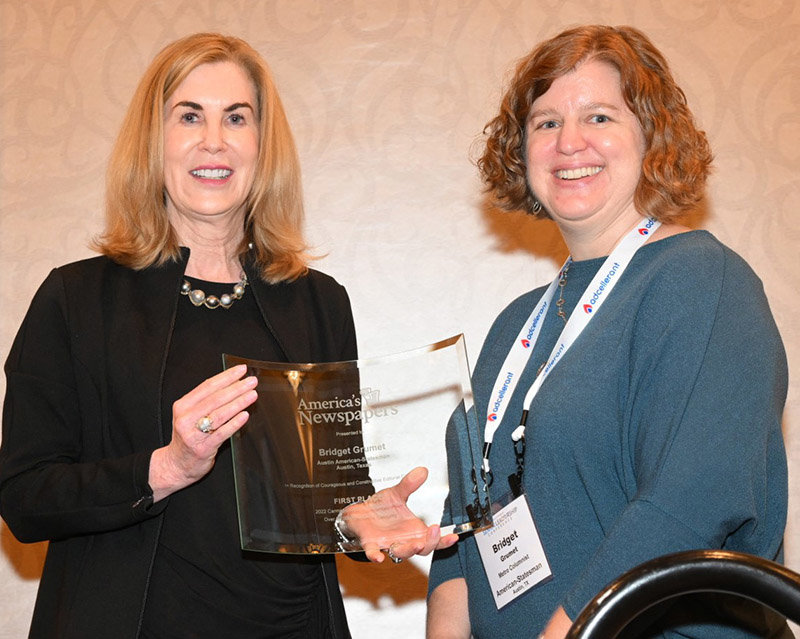
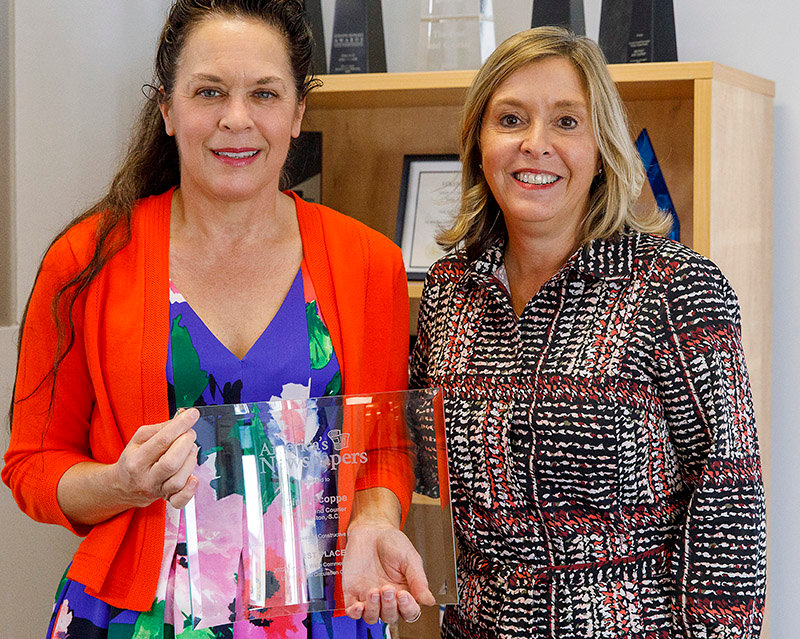
Brian Colligan, opinion editor of The Virginian-Pilot, Norfolk, Virginia
READ MORE
Dave Stafford, opinion page editor of The Republic, Columbus, Indiana
READ MORE
Five additional entries also were identified as finalists by the contest judges.